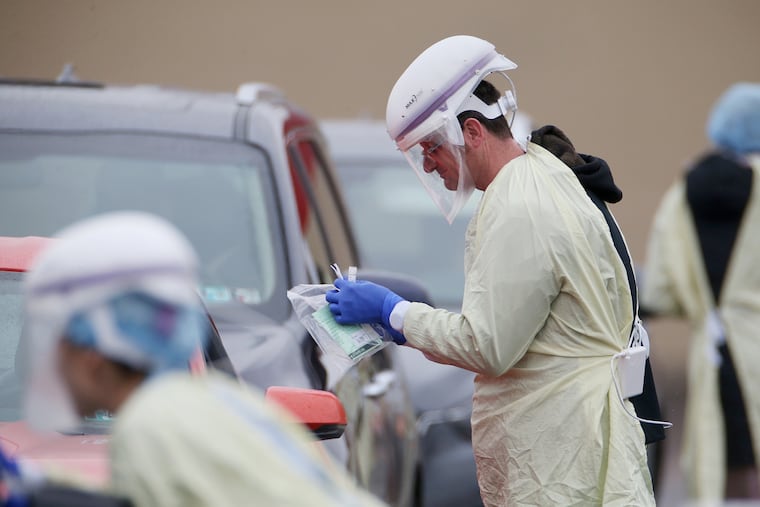My patient survived COVID-19. Now she’s afflicted by stigma. l Expert Opinion
As I listened to her story, I felt sad, disappointed and worried for her and I thought of other times I have heard COVID sufferers unfairly referred to as careless, lazy or dirty.

My patient, a generally healthy woman in her mid-50s, recently overcame an agonizing case of COVID-19 that caused her nearly four weeks of physical misery and isolation. Thankfully, she avoided hospitalization, and is now back to normal.
Last week, she went to have a knee X-ray for an unrelated condition. While she waited in the examination area, she overheard a technician scold a worker for not properly identifying her as a “COVID case.” The technician said little when she returned to the room, made no eye contact, and proceeded quickly through the examination. My patient felt like an outcast.
This was layered onto the loneliness she was already struggling to process after weeks of quarantine, and guilt that she might have unknowingly infected her family before she even knew she had the virus. As I listened to her story, I felt sad, disappointed and worried for her and others facing this cruel stigma. I thought of other times I have heard COVID sufferers unfairly referred to as careless, lazy or dirty.
» READ MORE: Doctors’ offices are reopening. Why you might want to visit virtually as COVID-19 continues. l Opinion
COVID-19 patients with cough and fever, especially those who are in the ICU on mechanical ventilation, are an exceptional threat to those around them because so much virus is sent into the air by this technology. Health-care workers who care for these patients must always wear head-to-toe personal protective equipment, following strict procedures whenever they put it on or take it off.
Otherwise, we all should follow standard distancing and hygiene guidelines with everyone we interact with, including those who have recovered from this illness. Patients who survive COVID-19 should feel free to celebrate their triumph. They are not a contagion threat once they test negative for the virus, and should not have to worry that they may be shunned. In fact, as we learn more about coronavirus immunity, we could be celebrating survivors as sources of antibody-rich blood plasma that might save others. And survivors might be in great demand by employers, if their personal immunity proves durable.
One reason this infection is so fearsome is that it comes in so many disguises. Some carriers may have no symptoms. Or they may be ill with mild flu-like symptoms — or with a life-threatening catastrophe. Fear is normal under these circumstances, but when fueled by misinformation, it may lead to bias and emotional injury. We should direct our outrage toward the virus itself, or those who threaten us and our health-system capacity by not following the recommended precautions of social distancing, hand hygiene and wearing masks in public.
» READ MORE: COVID has changed how I will practice medicine, forever | Expert Opinion
My patient’s story was disturbing and eye-opening, and I am grateful that she chose to share it with me. She helped me realize that I should ask all of my patients with COVID, who are in quarantine and even those who have recovered whether they have felt stigmatized. Physicians must do more than simply take down a basic patient history; we must offer presence and curiosity, which help patients feel safe disclosing emotional wounds that require attention. As citizens, we need to direct our fear at the virus, the disease and unsafe behaviors, not at the victims. Survivors of COVID-19 deserve our empathy, sensitivity and support.
Jeffrey Millstein is an internist and associate medical director for patient experience at Penn Medicine.